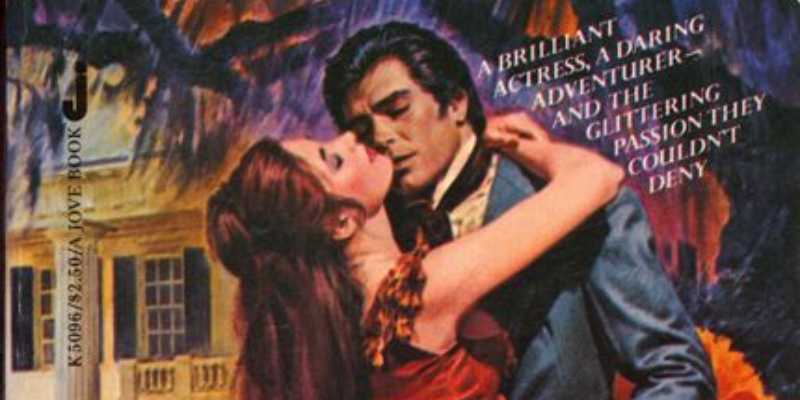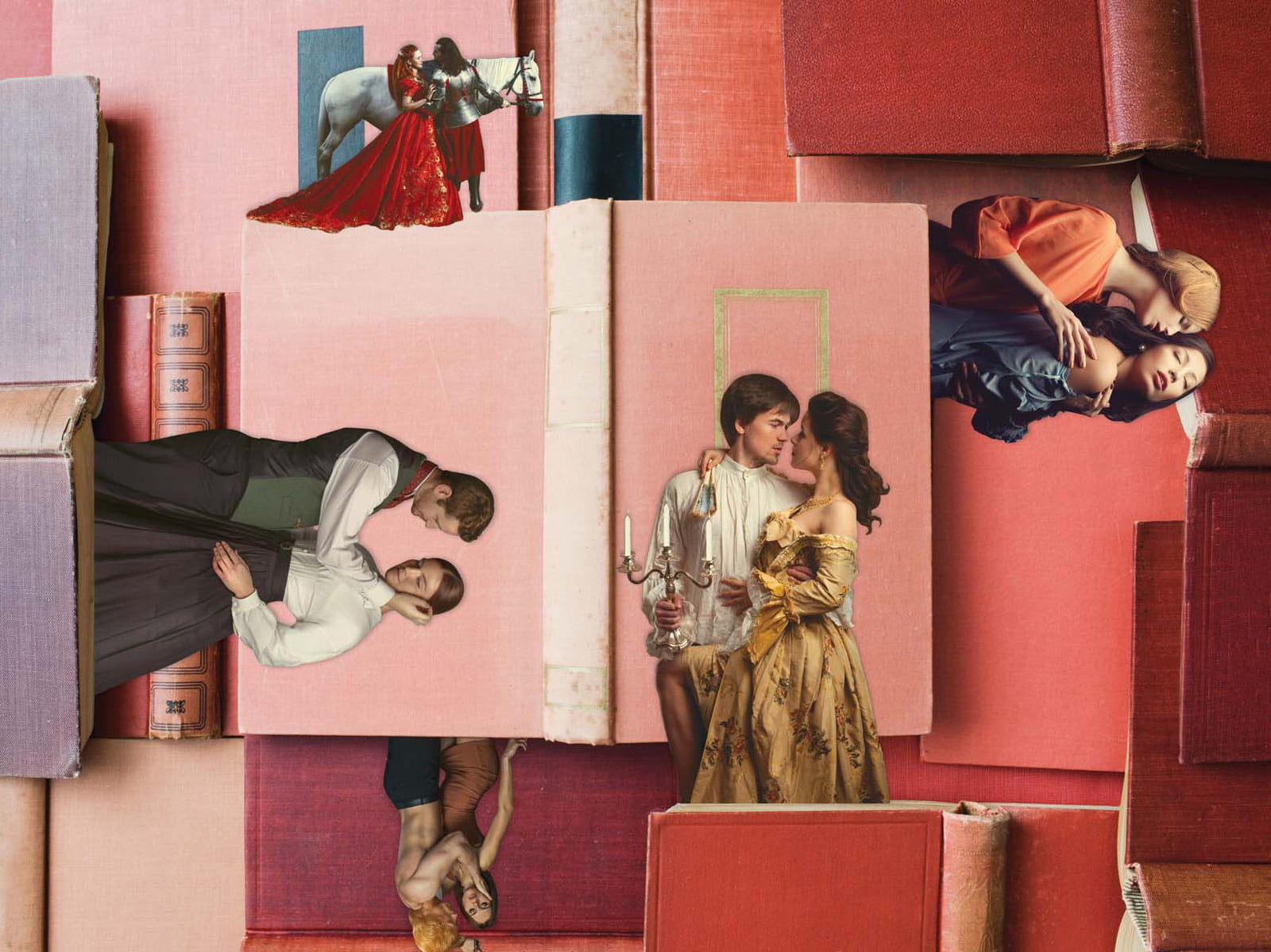Editor’s Note: FII’s #MoodOfTheMonth for January, 2022 is Our Evolving Relationship With Feminism. We invite submissions on the many changing aspects of the feminist discourse, throughout the month. If you’d like to contribute, kindly email your articles to sukanya@feminisminindia.com
Romance and feminism have always had a contentious relationship.
In fact, if one does read the ‘”bodice rippers” (as romance novels were termed) of the 1980s, the feminist reader will definitely be offended and enraged. The genre was generically named so because the heroes in these novels would almost always literally rip the bodices of the heroines in a moment of searing passion. These books were immensely popular, but were also what Hilary Clinton claimed to be the reason behind cases of sexual harassment or assault.
Whether romance novels are feminist or not is a different conversation and debate altogether, but are they inherently bad, deserving to be pushed aside by feminist (or not) readers?

As someone who has grown up on Tumblr feminism since her teen years, and reading black and white font posts elaborating sexism and misogyny, feminism for a long time to me, was absolute independence and empowerment. The notion of a ‘Happily Ever After’ was demonised as a patriarchal, neoliberal, capitalist trap that sought to enslave women in an unequal relationship.
Along with that, there was the general conception about popular romance novels as light, fluffy, not serious at all, and most succinctly, ‘trashy’. So I grew to believe that reading romances was a thing to be ashamed of and the covers of my Linda Howard or Meg Cabot had to be hidden by a Shakespeare or Marquez.
My consistent engagement and negotiation with feminism has taught me that there actually isn’t just one feminism but multiple feminisms for each individual. What I have also realised is that feminism doesn’t impose judgments or shame someone who decides to derive fun or pleasure from something. The initial discomfort that I felt while reading romances was quickly resolved by simply shutting off the feminist judgment of my brain – a careful balancing act. After some careful consideration, I realised I can bridge that gap simply by not imposing judgment and by being aware of that “critical space” in my mind
Not that Shakespeare or Gabriel Garcia Marquez did not write about romance or did not let the themes of love and longing lead their plots. In fact, some romance novels have now become classics due to the standards set by men, and their biased notions about what good writing is. If it is a “serious” romance novel, then maybe it is a novel worth reading. If love is just a subplot, then maybe the book is worth reading for the other “more important subplots” like war, disease, and other human emotions and events that are more complex than two people meeting each other for the first time and finding a life-long companionship.
So why did a teenage Sukanya pick up a Mills & Boons mass-market paperback romance gleefully anyway? Why did she feel vindicated when the hero finally confessed his love to the heroine and they kissed and everything was fine? Why did she learn how to hide her Goodreads to-read lists so that her friends wouldn’t see her reading romance novels?

As an adult, I slowly learned to rationalise my fascination with romance novels and why I read them – I told myself it is a trivial hobby, but not a serious pursuit. I told others that it helps me relax and unwind after a whole day of reading difficult academic texts. However, these were merely excuses and a hasty rationalisation to hide the shame that I still carried.
Admittedly, if read from a feminist lens, many of these books would not be fit for consumption. The older romance novels thrived on plots where the heroine was often in a vastly subordinate position to the hero, leading to unequal power hierarchies. As author Maya Rodale points out, if the hero is the boss and the heroine is his secretary (a very popular trope) in a book, how does the author remain blind to the inherent unequal power dynamics in that relationship?
However, in more recent romance books, we can clearly see authors redefining boundaries and writing about not just consent but enthusiastic and informed consent along with safety and respect. They check the age-old impulses of writing scenarios where the hero’s mouth comes crashing down on the heroine to silence her during a passionate argument or when the hero follows her home to ensure she is safe.
An adult and feminist Sukanya has the advantage of being aware – she understands the aspirational and fictional space that romance offers and how it can be a safer world as compared to the real world where endings are rarely happy or the path towards ‘Happily Ever Afters’ rarely so smooth. She is aware that many of the romance books can easily become a true-crime podcast if presented from a different angle, that the overbearing alpha macho heroes look good only on pages and would probably be huge red flags in real life
Something else that often conflicts me is with respect to romance novels with content of sexual nature – can we also learn from them by engaging with them as feminists? The authors of these erotic romance novels write consent rather than implying it through physical desire. The sexual situations are much more detailed and articulated, and consent is not just given once, but asked for through all the different acts.
Being mindful of power dynamics and trying to mitigate or navigate through that also assumes paramount importance to most authors nowadays. An explicit discussion about kinks actually helps in negotiating and redefining boundaries not just during sex but in normal interactions as well. Since so much of non-normative sexual interaction depends on full and active consent from all parties before entering the imagined space of unequal power dynamics, the conversation about BDSM and other sexual encounters that new age romantic, erotic novels initiate are relevant in understanding consent and agency.
Also read: How Helen Hoang Explores Autistic Spectrum, Consent & Caregiver Burnout In Her Romance Novels

Romance novels offer a critical space between what one reads and likes and what one does, and policing women’s desire to use that escape through fantasy may be a product of patriarchy itself. If romance novels also serve as a “reference point” which teaches young girls and women what can be possible in real life and what they can demand from potential partners – then there is no easy answer about the impact of the romance genre that can be classified into a simple binary of good or bad.
In addition to that, there is a unique aspirational quality of romance that makes readers go back to them time and again for some ‘feel good’ emotions – a quick cheerful read where there is a happily ever after, or even an ugly cry when the reader needs it. They may not always relate with the protagonists, but feel their pain or anger and travel with them anyway.
My consistent engagement and negotiation with feminism has taught me that there actually isn’t just one feminism but multiple feminisms for each individual. What I have also realised is that feminism doesn’t impose judgments or shame someone who decides to derive fun or pleasure from something. The initial discomfort that I felt while reading romances was quickly resolved by simply shutting off the feminist judgment of my brain – a careful balancing act. After some careful consideration, I realised I can bridge that gap simply by not imposing judgment and by being aware of that “critical space” in my mind.
An adult and feminist Sukanya has the advantage of being aware – she understands the aspirational and fictional space that romance offers and how it can be a safer world as compared to the real world where endings are rarely happy or the path towards ‘Happily Ever Afters’ rarely so smooth. She is aware that many of the romance books can easily become a true-crime podcast if presented from a different angle, that the overbearing alpha macho heroes look good only on pages and would probably be huge red flags in real life.
However, the mere act of reading romance books openly and proudly can be an act of emancipation and asserting one’s own feminism – simply doing what one chooses to do without harming others.
So an adult Sukanya now shares the absurd plots of some of the romance novels she reads with her friends and laughs with them. She happily highlights the sentences from the book that stood out to her the most. She may even cringe and critique some of the romance book covers with blatant objectification, but she is not ashamed of reading them while also having a feminist conscience that can see through them.
Also read: ‘True Love’ & Other Fictional Stories Of Romance
Featured Image Source: 5280 Magazine
About the author(s)
Sukanya Bhattacharya is a postgraduate student at Tata Institute of Social Sciences, Mumbai. She is interested in looking at feminism and gender through the lenses of popular culture, social media and urban spaces. She has written for 'Asia in Global Affairs' and has also been a volunteer at 'Calcutta Rescue'. She is also an avid debater and a quizzer.




